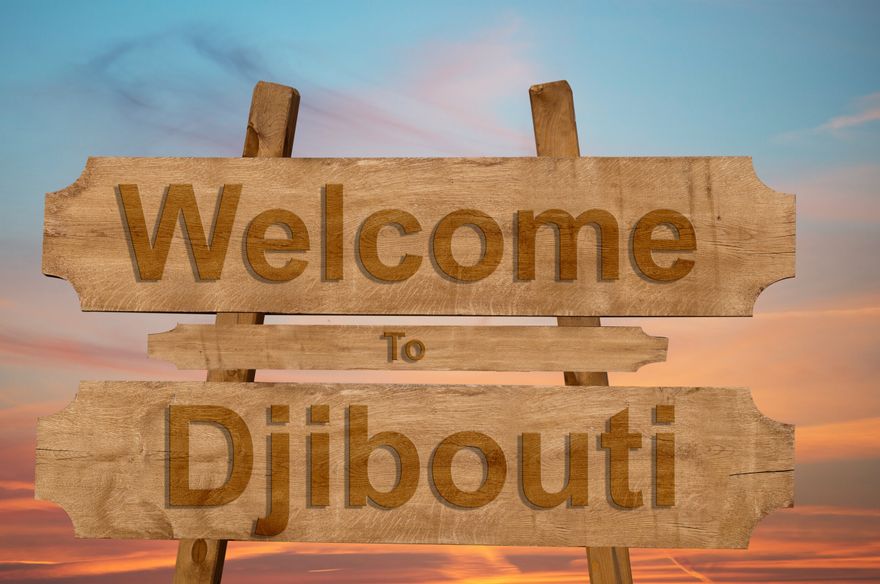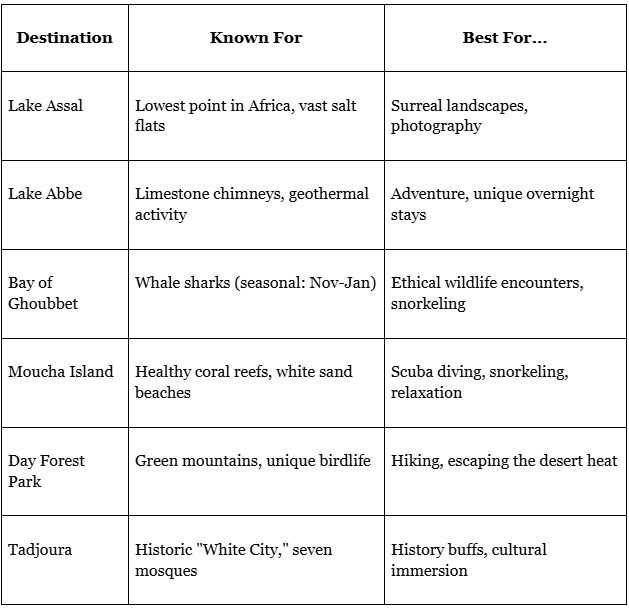Have you ever desired to visit a place that looks like a fragment of a science fiction book? A land where the earth is breathing and volcanic deserts are sharply sunk in the sea and collide with colorful coral reefs. This is Djibouti, a country of the most beautiful contradictions whereby ancient nomadic cultures intersect in a rare crossroad in culture. It is a place that has a totally mind-altering experience and provides the types of raw and adventurous traveling experiences that are increasingly getting more difficult to get.
This jewel of East Africa was long a secret, to be divulged to few, and only by the daring adventurers. But that's changing. Since the complexity of online eVisa procedures was eliminated, the foreign territories and the culture of Djibouti are no longer a target of any tourist wanderer that possesses a curious attitude. This is not a regular vacation, it is a journey that will immerse you into one of the most geologically active and culturally exciting areas of the planet.
Then take your sense of wonder and a nice pair of walking shoes. We will take a look at the amazing things and places that await you in Djibouti.
Your adventure to Djibouti: The Djibouti eVisa
Access is the first thing that should be mentioned. The simplicity of the Djibouti eVisa is a marvel that is beauty. All the Djibouti eVisa application is done online, and that is why you no longer need to schedule embassy appointments and put your passport in the mail. It is an up to date smooth procedure that is your initial step into this amazing country. After that is sorted out, then you can get to the exciting part of planning your itinerary.
Djibouti City: An Intercultural Mega city
Probably this journey will begin and finish in Djibouti City, a port capital with a rhythm of its own. It is a location of intriguing opposites, and fine French colonial structures with Moorish arches, are close by the African market places. Spend a day soaking it all up. Explore the European Quarter, followed by drowning in the vivacious bustle of the African Quarter and the Central Market ( Marché Central). In this place, the atmosphere is filled with the smells of Yemeni coffee, foreign spices and freshly baked bread. It is the ideal entry point to the Afar, Issa, and Somali cultures that meet in the middle.
Lake Assal: White Salt Desert Under the Sea
Get ready to have a really surreal experience. Some 2 hours south of the capital, there is Lake Assal, a very beautiful crater lake whose surface is 155 meters (509 ft) below the sea level. This is the lowest in Africa, and the third lowest in the world. The picture is a sight to behold: a large sun-baked area of the most gleaming white salt crystals covers a nucleus of the most superb turquoise water. The salinity of the water is 10 times more than ocean water and therefore it looks weird in terms of thickness and buoyancy. It is a bleak, hot, and highly beautiful country. Note to self: never compromise on the use of the sun glasses because the salt glare is blinding.
Lake Abbe: A Landscape from Another Planet
If Lake Assal feels otherworldly, Lake Abbe is like stepping onto the set of a sci-fi blockbuster. This is the fabled landscape that could have inspired Planet of the Apes. The plain is studded with hundreds of towering limestone chimneys, some soaring 50 meters high, venting steam from the Earth's core into the dry air. It is a geothermal wonderland where you can literally feel the planet breathing. For the ultimate experience, arrange to stay overnight in a traditional Afar camp. Watching the sunset and sunrise cast long, dramatic shadows across the chimneys is an absolutely unforgettable spectacle.
At a Glance: Djibouti's Top Destinations
The mild monsters of Ghoubbet Bay
It is the most rewarding experience to many travelers. Young whale sharks are also attracted by the plankton-laden waters of the Bay of Ghoubbet every year in the months of November through January. These are the whales in the sea, and yet so gentle animals. It is a very humbling and awe-inspiring experience to swim with these magnificent and spotted giants. The tour operators in the region have adopted responsible and respectful tourism where such encounters are safe to the visitors as well as the sharks.
Moucha and Maskali Islands: Paradise beneath the waves
The idyllic Moucha and Maskali islands are within such a short boat ride in case you need to have a break with the desert heat. The rugged volcanic terrain is replaced here by the white sand beaches and the crystal clear waters of the Gulf of Tadjoura. It is a paradise of snorkelers and divers, and as such the place is full of colorful coral reefs and sea turtles, clownfish, parrotfish and the likes. It is the ideal day outing to rest and be in a position to see the amazing marine biodiversity at the Red Sea.
Day Forest National Park: A Green Island
It is a magical situation to find a forest in a 90 percent desert country. Located in the Goda Mountains, Day Forest National Park is a green oasis that seems a million miles apart, not to mention the salt flats that lie beneath. Being one of the few remaining primary forests in the area, it is an important ecosystem with thousands of juniper trees that are of ancient age, acacias, and wild olive trees. Cold climate and trails in the shade make it an amazing place to hike, observe birds and get acquainted with a totally new perspective of the varied landscape of Djibouti.
Tadjoura: The old city of Seven Mosques
Go back to date in Tadjoura, one of the oldest towns on the coast of East Africa. It has a wonderfully relaxed and authentic air, called Les Cahiers (the White City) by the quaint whitewashed architecture of it. Visit its ancient mosques, lose yourself in the silence, little streets, and marvel at the gorgeous view of the sea. It is the historical center of the Afar Sultanate, and it will take a person deep into the history of the region.
A Large Desert Mirage, the Grand and the Petit Bara
The Bara deserts consist of thick, plain clay plains which are sun cracked and which stretch indefinitely towards the horizon. The feeling of driving over them is like walking the floor of some long-dried old sea.
The Grand and Petit mirages, and the landscape seems to be flowing and alive. It is an arresting, humiliating landscape that goes all the way to the horizon. The act of passing through them reminds one of a journey through a dry lakebed in the end of the world. The distance is shimmering with miracles made by the heat which plays tricks with your eyes. It is an empty and strong landscape that presents the crude and uncivilized beauty of Djibouti. It is also an amazing place to land and sail where adventure lovers jump into the wind and use it to sail across the desert.
Practical Tips for Your Djibouti Adventure
- Best Time to Visit: The cooler months from October to April are most comfortable for travel. The summer can be extremely hot.
- Getting Around: Outside of Djibouti City, a 4x4 vehicle with an experienced driver is essential to navigate the rugged terrain.
- Stay Hydrated: The climate is dry and hot. Always carry more water than you think you’ll need.
- Respect Local Culture: Djibouti is a predominantly Muslim country. Dress modestly, especially when visiting religious sites, and always be respectful of local customs.
Djibouti is not a typical tourist destination, and that is precisely where its magic lies. It's a country of raw, natural wonders and profound beauty. From the lowest point in Africa to the gentle giants of the sea, this corner of the Horn of Africa offers an adventure that is as unique as it is unforgettable. And it all starts with that simple eVisa.








Oldest comments (0)